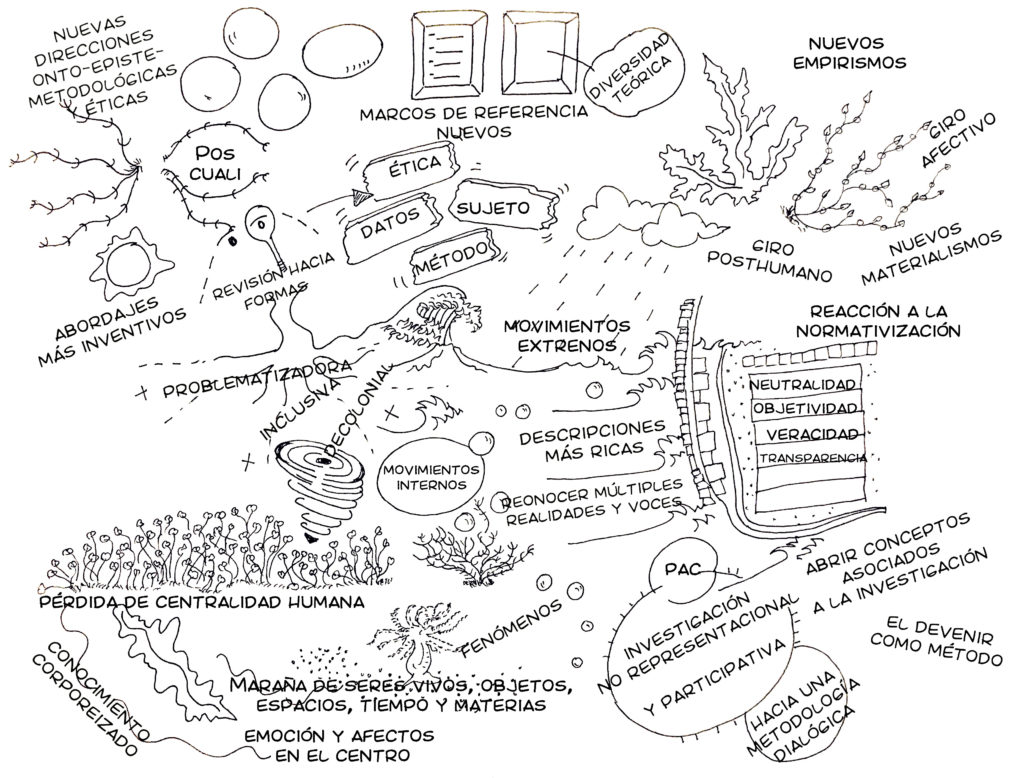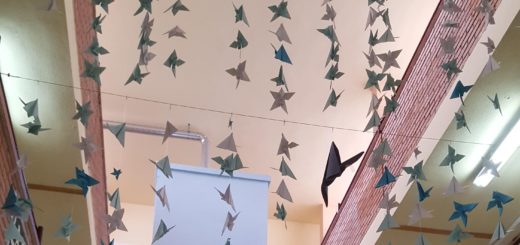Post-qualitative research: origin, references and permanent becoming
A purpose that has led us to search in the so-called “post” theories (St. Pierre, 2013) for the territory of epistemic diversity that we were pursuing in order to approach our work; where diverse theoretical positions coexist but in logical coherence with a kind of scenario that requires new inventive approaches (Coleman, 2017) with which to continue adding complexity to our realities and broadening their possible readings. This is a question that becomes more necessary than ever, due, among other things, to the fact that the world in which we live can no longer be explained or justified through orthodox thinking (St. Pierre, Jackson and Mazzei, 2016), and which calls on us to rethink the meaning of the type of research that has been developed from the premises of logical empiricism (Lather and St. Pierre, 2013).

Image 1 The post-qualitative drift. ( Source: Estibaliz Aberasturi Apraiz )
The term postqualitative includes the research that has appeared over the last two decades, rethinking the ontology and epistemology characteristic of humanist qualitative methodologies (Lather and St. Pierre, 2014), which explore and try to re-imagine new onto-epistemological and ethical directions. This position denouncesthe perpetuation of a western, white, masculine, humanist and hegemonic way of thinking (St. Pierre, 2014), making us more aware of our colonialism .And it dialogues with other perspectives and stories relegated to the margins, and which connect knowledge, power and geopolitics, bringing us closer to other kinds of epistemologies such as the indigenous ones (Wu, Eaton, Robinson-Morris, Wallace, and Han, 2018) so often turned into subalterns, and allowing to emphasize on the contrary, the complexity, porosity and performativity of the mutually constitutive human and non-human elements within our research practices. A post-qualitative position of research, always multiple and crossed by a theoretical diversity, that does not have a single face nor is articulated in a single proposal and that cannot be described in an orderly way in a research handbook.

Authors
Jose Miguel Correa Gorospe
Universidad del País Vasco/ Euskal Herriko Unibertsitatea
Estibaliz Aberasturi Apraiz
Universidad del País Vasco/ Euskal Herriko Unibertsitatea
Aingeru Gutierrez-Cabello
Universidad del País Vasco/ Euskal Herriko Unibertsitatea






